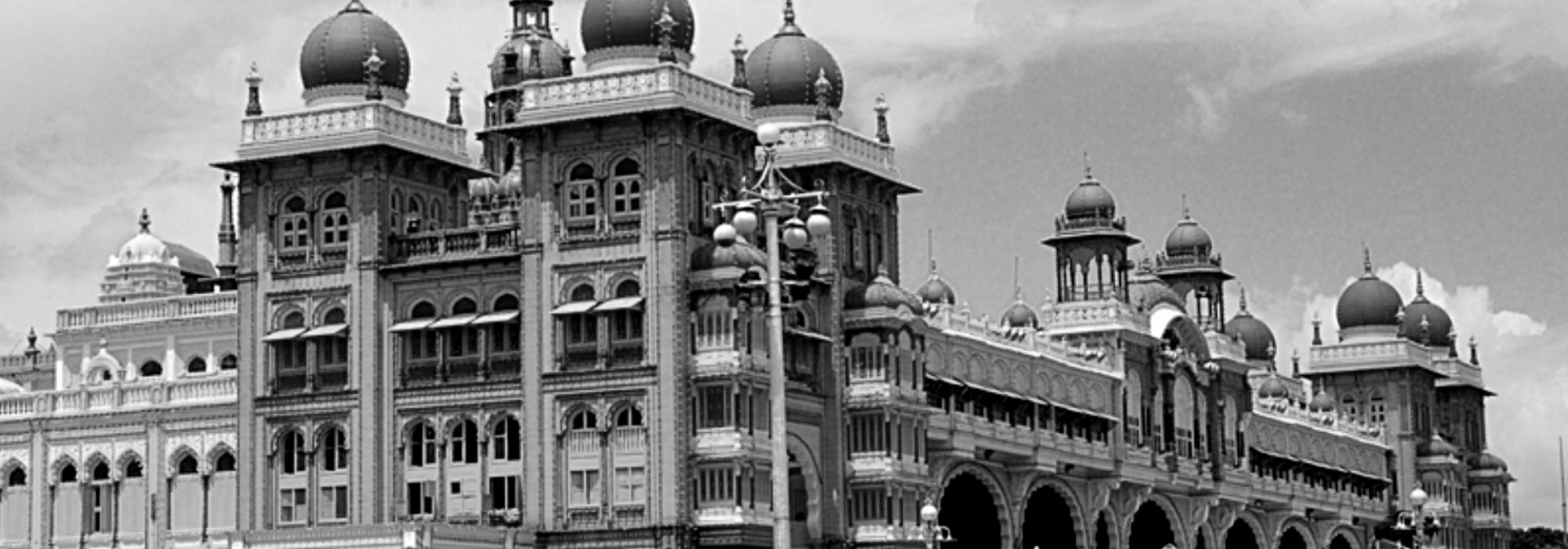Sardār M Kantaraj Urs was related to the Royal family: he was the Queen Regent’s younger brother and son-in-law. However, this wasn’t—even remotely—the reason why he obtained the post. He rose to power purely because of his experience, competence, and merit. Even if he had belonged to some other caste and had not been related to the royal family, he justly deserved such a position of authority.
Kantaraj Urs completed his higher education in Madras and graduated [from Madras Christian College]. He belonged to a long lineage of aristocrats. He was a rare blend of kindness and nobility.
Kantaraj Urs was a Mysorean by birth. Since he was a big zamindar of the Kaḻale family, he had grown up interacting regularly with common people in many ways. He was intensely mindful of people’s problems and hardships, and was a person soft at heart.
Love for his State
Having worked in different departments of the government, Kantaraj Urs had gained rich experience. Once, during 1910-11, there was a flooding of the Kaveri and a few other smaller rivers. In the regions of Tirumakudalu Narasipura, Gargeshwari, and Somanathapura, the floods gushed into the fields, wetlands, houses, and cowsheds, causing severe damage and loss to people and cattle alike. At that time, to resolve the problems of those affected and make necessary arrangements, an emergency citizens’ meeting was convened in Mysore. Kantaraj Urs, who was a Deputy Commissioner, presided over the meeting. During his opening speech, while describing the havoc caused by the flood and its inflictions on people, he intensely broke down, not being able to control his sorrow. That shows his deep sense of patriotism.
His tenure as a Diwan was only for a short period. Half of that time was lost due to his ill-health. Thus, he couldn’t undertake works significantly.
Miller Committee
The Miller Committee report was one of the most important incidents of his tenure. This was a result of Prajāmitra Maṇḍali’s agitation.[1] Many people believe that the Maṇḍali had the sympathy of Kantaraj Urs. It is immaterial whether or not the Miller Committee prepared a report; let the government implement the recommendations of the report if it wishes to; however, publication of the report is not necessary. There is also a danger in publishing it. The report may vitiate inter-caste animosity and communal discord – thus opined a few prominent people in the government. Apparently, Kantaraj Urs was adamant that the report be published and said that it had his approval. His Majesty believed in the tradition of approving the Chief Minister’s recommendations. Thus, the Miller Report got published and the same was approved by the government.
This is a subject of controversy. Growing this any further benefits none. Let us leave it at that.
In all other aspects, Kantaraj Urs was worthy of commendation. His speech, conduct, and temperament tended towards greatness. He was an admirer of Sanskrit. He used to encourage scholars in many ways.
He would treat his farmers and those dependent on him with natural affection and be of help to them.
Not being able to utilize his tenure to its full due to illness during the last days of his term, Kantaraj Urs had to prematurely retire from his position as the Diwan.
~
Around the time when Kantaraj Urs became the Diwan, I had written thus in an article: “Visvesvarayya was an extremely competent man. He had several novel ideas. People of his calibre and with his level of competence can tolerate the objective criticism of those new ideas and absorb what is useful. When a commoner incapable of such openness takes charge of the administration, brutal criticism might result only in a sense of hostility and would not benefit anyone.”
Resentment
Apparently, reading this had angered Kantaraj Urs. When a friend informed me about this, I felt an urge to convey my appreciation and the personal respect I had for him, and so went to meet him. His secretary, Mr. T V Tiruvengadam Mudaliar, was my friend. Telling him the purpose of my visit, I handed him my visiting card. He took it inside, then came out and said, “Saheb is not keeping well now!”
I went back once again after three to four days. The same thing happened.
When I went back after a week, Mr. Mudaliar told me (in Tamil) laughing, “Why did you come? His loose motion hasn’t stopped yet!” Sensing that the resentment had continued, I gave it up at that.
There is nothing exaggerated about this incident. It is normal to get angry. Even remaining in the same state is quite natural. We need not attach any further meaning to it.
This is an English translation of the ninth chapter of D V Gundappa’s Jnapakachitrashaale – Vol. 4 – Mysurina Diwanaru. Edited by Hari Ravikumar. Thanks to Shashi Kiran B N for his help.
Footnote
[1] The Prajāmitra Maṇḍali launched a movement to bring reservations for people from backward communities. The Maharaja of Mysore, Krishnaraja Wodeyar IV constituted the Miller Committee (led by Sir Lesley Miller) in 1918. The Miller Committee report recommended a reservation for non-brahmins. Diwan Visvesvaraya was strongly opposed to the idea of reservations and rejected the Miller Committee report, which finally led to his resignation from the post of Diwan. Kantaraj Urs became the Diwan after Visvesvaraya and held the post until 1922.














































